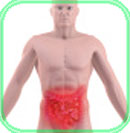
Benefits
Of Exercise
Central
Nervous System Diseases:
 People
with multiple sclerosis, Parkinson's disease, and Alzheimer's
disease should be encouraged to exercise. Specialized exercise
programs that improve mobility are particularly valuable
for Parkinson's patients. Patients with neurological disorders
who exercise experience less spasticity as well as reduction
in -- and even reversal of -- muscle atrophy. In addition,
the psychological benefits of exercise are extremely important
in managing these disorders. Exercise machines, aquatic
exercises, and walking are particularly useful.
People
with multiple sclerosis, Parkinson's disease, and Alzheimer's
disease should be encouraged to exercise. Specialized exercise
programs that improve mobility are particularly valuable
for Parkinson's patients. Patients with neurological disorders
who exercise experience less spasticity as well as reduction
in -- and even reversal of -- muscle atrophy. In addition,
the psychological benefits of exercise are extremely important
in managing these disorders. Exercise machines, aquatic
exercises, and walking are particularly useful.
 Gastrointestinal
Problems:
Gastrointestinal
Problems:
Older
people who exercise moderately may have a lower risk for
severe gastrointestinal bleeding. Experts suggest that moderate
exercise might even reduce the risk for some intestinal
disorders, including ulcers, irritable bowel syndrome, indigestion,
and diverticulosis.
Leg
Cramps:
 Exercise
can even improve pain from clogged arteries in the legs,
a condition called intermittent claudication. The best approach
in such cases is to walk until pain develops; then rest
until pain resolves before resuming walking. In six-month
studies, people had tripled the amount of time they could
walk before the onset of pain.
Exercise
can even improve pain from clogged arteries in the legs,
a condition called intermittent claudication. The best approach
in such cases is to walk until pain develops; then rest
until pain resolves before resuming walking. In six-month
studies, people had tripled the amount of time they could
walk before the onset of pain.
Weight
Loss:
 Exercise
burns calories and can help individuals fight obesity. If
caloric intake remains constant, regular workouts lead to
weight loss. Be forewarned, however, that the pounds won't
melt off magically. It takes 35 miles of walking or jogging
to consume the calories in one pound of fat. Effective weight
loss means a long-term commitment to a regular program of
vigorous exercise.
Exercise
burns calories and can help individuals fight obesity. If
caloric intake remains constant, regular workouts lead to
weight loss. Be forewarned, however, that the pounds won't
melt off magically. It takes 35 miles of walking or jogging
to consume the calories in one pound of fat. Effective weight
loss means a long-term commitment to a regular program of
vigorous exercise.
One recent study indicated that for obese patients, a few
daily sessions for as short as 10 minutes each was effective
in helping the patients adhere to an exercise program. Abdominal
crunches may help replace abdominal fat with muscle. To
perform this exercise, the individual lies on the back with
the head and shoulders raised; he or she contracts the stomach
muscles, curling the torso slightly forward. Abdominal fat
is a particular danger to the heart, although it is unknown
whether doing crunches will specifically protect against
heart disease.
Psychological
and Emotional Benefits:
 Aerobic
exercise is linked with improved mental vigor, including
reaction time, acuity, and math skills. Exercising may even
enhance creativity and imagination. According to one study,
older people who are physically fit respond to mental challenges
just as quickly as unfit young adults. (Stretching and weight
training appear to have no such effects.)
Aerobic
exercise is linked with improved mental vigor, including
reaction time, acuity, and math skills. Exercising may even
enhance creativity and imagination. According to one study,
older people who are physically fit respond to mental challenges
just as quickly as unfit young adults. (Stretching and weight
training appear to have no such effects.)
Both
aerobic and nonaerobic workouts have been shown to reduce
depression. According to one study, exercise was as effective
for improving mood in people with clinical depression as
some common forms of psychotherapy. Either brief periods
of intense training or prolonged aerobic workouts can raise
levels of important chemicals in the brain, such as endorphins,
adrenaline, serotonin, and dopamine, that produce feelings
of pleasure, causing the so-called runner's high.




 People
with multiple sclerosis, Parkinson's disease, and Alzheimer's
disease should be encouraged to exercise. Specialized exercise
programs that improve mobility are particularly valuable
for Parkinson's patients. Patients with neurological disorders
who exercise experience less spasticity as well as reduction
in -- and even reversal of -- muscle atrophy. In addition,
the psychological benefits of exercise are extremely important
in managing these disorders. Exercise machines, aquatic
exercises, and walking are particularly useful.
People
with multiple sclerosis, Parkinson's disease, and Alzheimer's
disease should be encouraged to exercise. Specialized exercise
programs that improve mobility are particularly valuable
for Parkinson's patients. Patients with neurological disorders
who exercise experience less spasticity as well as reduction
in -- and even reversal of -- muscle atrophy. In addition,
the psychological benefits of exercise are extremely important
in managing these disorders. Exercise machines, aquatic
exercises, and walking are particularly useful.  Gastrointestinal
Problems:
Gastrointestinal
Problems: Exercise
can even improve pain from clogged arteries in the legs,
a condition called intermittent claudication. The best approach
in such cases is to walk until pain develops; then rest
until pain resolves before resuming walking. In six-month
studies, people had tripled the amount of time they could
walk before the onset of pain.
Exercise
can even improve pain from clogged arteries in the legs,
a condition called intermittent claudication. The best approach
in such cases is to walk until pain develops; then rest
until pain resolves before resuming walking. In six-month
studies, people had tripled the amount of time they could
walk before the onset of pain.  Exercise
burns calories and can help individuals fight obesity. If
caloric intake remains constant, regular workouts lead to
weight loss. Be forewarned, however, that the pounds won't
melt off magically. It takes 35 miles of walking or jogging
to consume the calories in one pound of fat. Effective weight
loss means a long-term commitment to a regular program of
vigorous exercise.
Exercise
burns calories and can help individuals fight obesity. If
caloric intake remains constant, regular workouts lead to
weight loss. Be forewarned, however, that the pounds won't
melt off magically. It takes 35 miles of walking or jogging
to consume the calories in one pound of fat. Effective weight
loss means a long-term commitment to a regular program of
vigorous exercise. Aerobic
exercise is linked with improved mental vigor, including
reaction time, acuity, and math skills. Exercising may even
enhance creativity and imagination. According to one study,
older people who are physically fit respond to mental challenges
just as quickly as unfit young adults. (Stretching and weight
training appear to have no such effects.)
Aerobic
exercise is linked with improved mental vigor, including
reaction time, acuity, and math skills. Exercising may even
enhance creativity and imagination. According to one study,
older people who are physically fit respond to mental challenges
just as quickly as unfit young adults. (Stretching and weight
training appear to have no such effects.)